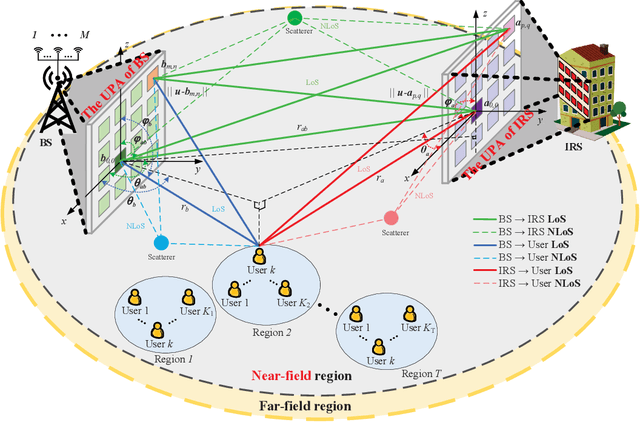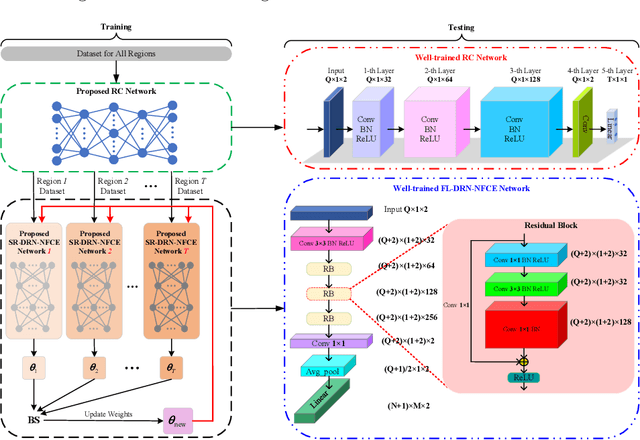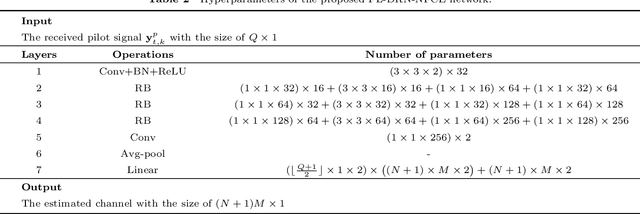Enhanced channel estimation for near-field IRS-aided multi-user MIMO system via deep residual network
Paper and Code
Oct 28, 2024



In this paper, channel estimation (CE) of intelligent reflecting surface aided near-field (NF) multi-user communication is investigated. Initially, the least square (LS) estimator and minimum mean square error (MMSE) estimator for the estimated channel are designed, and their mean square errors (MSEs) are derived. Subsequently, to fully harness the potential of deep residual networks (DRNs) in denoising, the above CE problem is reconceptualized as a denoising task, and a DRN-driven NF CE (DRN-NFCE) framework is proposed, and the Cram$\acute{e}$r-Rao lower bound (CRLB) is derived to serve as a benchmark for performance evaluation. In addition, to effectively capture and leverage these diverse channel features, a federated learning (FL) based global DRN-NFCE network, namely FL-DRN-NFCE, is constructed through collaborative training and joint optimization of single region DRN-NFCE (SR-DRN-NFCE) networks in different user regions. Here, users are divided into multiple regions. Correspondingly, a user region classifier based on convolutional neural network is designed to achieve the goal of matching datasets from different user regions to the corresponding SR-DRN-NFCE network. Simulation results demonstrate that the proposed FL-DRN-NFCE framework outperforms LS, MMSE, and no residual connections in terms of MSE, and the proposed FL-DRN-NFCE method has higher CE accuracy over the SR-DRN-NFCE method.
 Add to Chrome
Add to Chrome Add to Firefox
Add to Firefox Add to Edge
Add to Edge